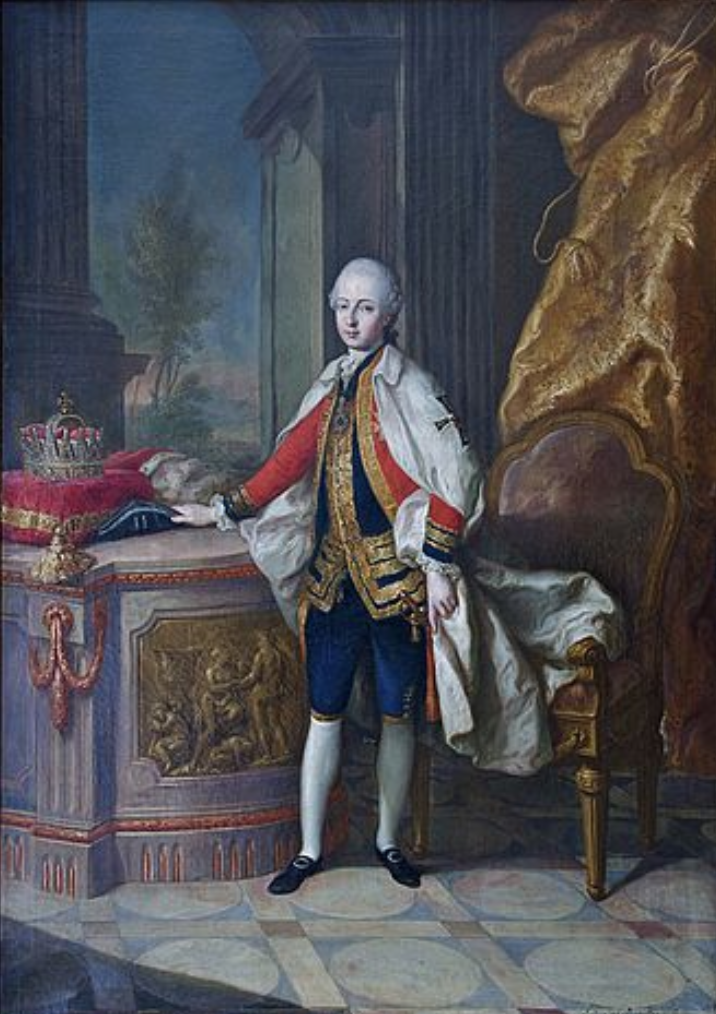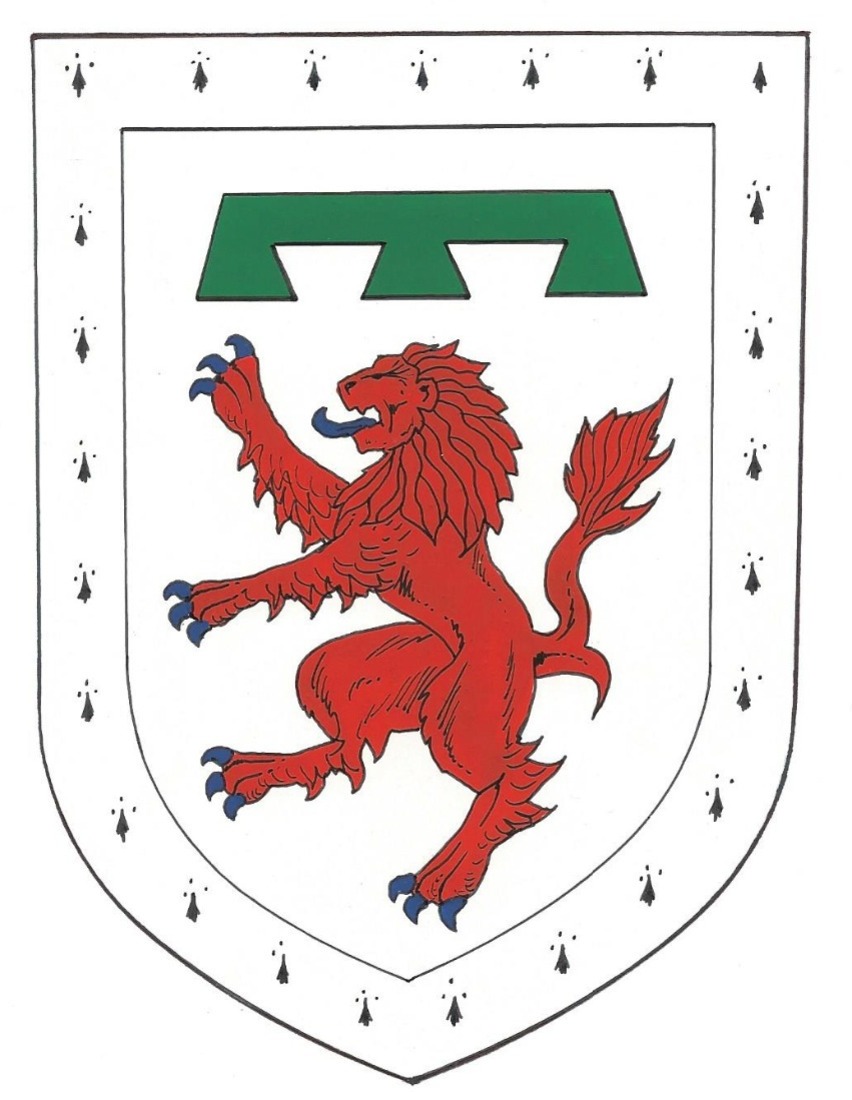Maximilian Von Habsburg
Sovereign Grand Commander 1768-1800


The House of Habsburg was one of the most important royal houses of Europe and the origin of all the formally elected Holy Roman Emperors between 1438 and 1740. However, the Habsburg we are interested in was never a Holy Roman Emperor but was certainly a person of some influence.
His Imperial and Royal Highness Maximilian, Franz, Xaver, Joseph, Anton de Paula Wenzel von Habsburg-Lothringen, Archduke of Austria, Prince of Hungary and Bohemia, Prince of Lorraine and Tuscany and Grand Master of the Teutonic Knights to give him his full names and titles was the sixteenth and last child of Francis I Holy Roman Emperor and the Habsburg ruler Maria Theresa.
His parents also had imposing titles with his father, being known not only as Francis or Franz I Stephen but also Duke Francis III of Lorraine and Bar (1729-1737), as Francis II Grand Duke of Tuscany((1737-1765) and from November 1740 co-regent of the Habsburg dominions and from 1745 Francis I, Emperor of the Holy Roman Empire.
His mother, Maria Theresa Walburga, Amalia, Christina, was Sovereign of Austria, Hungary, Croatia, Bohemia, Mantua, Milan, Lodonmeria, Galicia, the Austrian Netherlands and Parma.
Their marriage was the start of the Habsburg-Lorraine dynasty and Francis who was descended from Margaret de Gonzaga and Henry II of Lorraine, was the first European Prince to become a freemason being initiated in The Hague in 1731 at the house of the British Ambassador the 4th Earl of Chesterfield by the third English Grand Master Dr John Desaguliers; he was later made a master mason at Houghton Hall the Norfolk estate of the Prime Minister Sir Robert Walpole. Later while still in England he also became a member of the Gentlemen’s Club of Spalding. *
Maximilian the future Sovereign Grand Commander of the Ordre du Lys was born in the Hofburg Imperial Palace in Vienna, Austria in 1756 and his siblings included two Holy Roman Emperor’s, Joseph II and Leopold II, his sister Marie-Caroline was Queen of Naples and Sicily and his youngest sister was Marie Antoinette, destined to be the tragic Queen of France. From an early age he was marked out for a military career, but an unfortunate fall from a horse left him disabled in one leg and so his parents decided he was to have a religious career instead. In 1768 he became Sovereign Grand Commander of the Ordre du Lys **and in 1769 was made the coadjutor of the Teutonic Knights by his uncle the Grandmaster Charles Alexander of Lorraine as result of which in 1774 he travelled extensively throughout Europe visiting Germany, the Netherlands, Italy and France, becoming acquainted with members of the Order. His mother then decided she wanted him to be the governor general of Hungary to where he was sent for military training after which he led a short campaign in the War of the Bavarian Succession, but soon fell ill and his army abandoned the lands they had occupied.
Following his short military career he again turned his attention to the Church and after receiving a position in the diocese of Cologne through the efforts of the prime minister Casper Anthony Belderbusch in 1784 became Archbishop and imperial or Prince Elector of Cologne† quickly followed by being appointed Bishop of Munster and Duke of Westphalia, positions he held until his death. The Archbishopric of Cologne was one of the major ecclesiastical principalities in the Holy Roman Empire and as a result of this appointment he took up residence in the Archbishops Palace in Bonn, Germany. In 1780 he succeeded his uncle Prince Charles Alexander of Lorraine as Hochmeister or Grand Master of the Teutonic Knights of St. Mary’s Hospital and so he began a campaign to improve conditions in the lands ruled by the order by simplifying administration, reforming the judiciary and improving education for the local populace.
Maximilian had a keen interest in the arts especially music and among his protégés were Mozart, Hayden and Ludwig van Beethoven in his early formative years who intended to dedicate his first symphony to Maximilian who unfortunately died before its completion. He has also been described as intelligent, easy going and one of the most cultured and enlightened men of his age but was also known for wearing old and tattered grey cloaks in the streets of Bonn and stopping to converse with the populace. He maintained a court orchestra in which Beethoven’s father was a tenor and his great grandfather also called Ludwig van Beethoven had been Kapellmeister (someone in charge of the musicians and the music). As a young man Ludwig was in the orchestra as a viola player. In 1791 the orchestra went with Maximilian to his summer palace at Mergentheim by boat and the twenty years old Beethoven was appointed kitchen scullion on the boat for which he was presented with a scroll commemorating that event; he kept the scroll until the end of his life.
Prior to the outbreak of the French Revolution Maximilian warned his sister Marie Antoinette of the possible coming storm and during the Revolution itself provided a haven for the aristocratic refugees. In 1794 his domain was overrun by troops of Revolutionary France and with both Bonn and Cologne being occupied by the invading army, Maximilian was forced to leave his palace and his domains on the left bank of the Rhine to which he never returned, these eventually passing to France under the Treaty of Luneville and later to Prussia.
He did however retain his territories on the right bank of the Rhine including Munster and the Duchy of Westphalia but went to live in Vienna for the remainder of his life dying without issue in Scloss Hetzendorf near Vienna in 1801 aged only 45. He was the last Elector of Cologne as his successor Archduke Anthony of Austria, son of Leopold II Holy Roman Emperor and Maria Luisa of Spain, was never able to assume his title. It would appear that Maximilian may have been forced to relinquish his position as head of the Ordre du Lys in 1800 of which you will read more in the next chapter.
These days the head of the house of Habsburg is Charles von Habsburg but known in France as Charles de Habsburg-Lorraine. He is also the Head and Sovereign of the Order of the Golden Fleece. One of his elder sisters, Monika von Habsburg (born 1954) married Luis Maria, Gonzaga, de Casanova-
Cardenos, and so as you can see the old family names are still entwined.
* The Gentlemen’s Club of Spalding (a town in Lincolnshire) was a learned society set up in 1710. It was organised as a society of gentlemen for the support of mutual benevolence and their improvement in the liberal sciences as well as polite learning. Early members of this society included Sir Isaac Newton, Sir Hans Sloan, Alexander Pope the poet, Alfred Lord Tennyson and Andrew Michael Ramsay (known as Chevalier Ramsay) a close associate of Charles Radcliffe 5th Earl of Derwentwater.
** It was Maximilian who changed the Order from a group of mercenary companies into an order of chivalry.
† Prince Electors were members of the electoral college of the Holy Roman Empire and were responsible for electing the new Holy Roman Emperor and as such Maximilian was involved in the election of two of his elder brothers to that position. The post of Elector carried great prestige and was only second in rank to the King or Emperor.

























